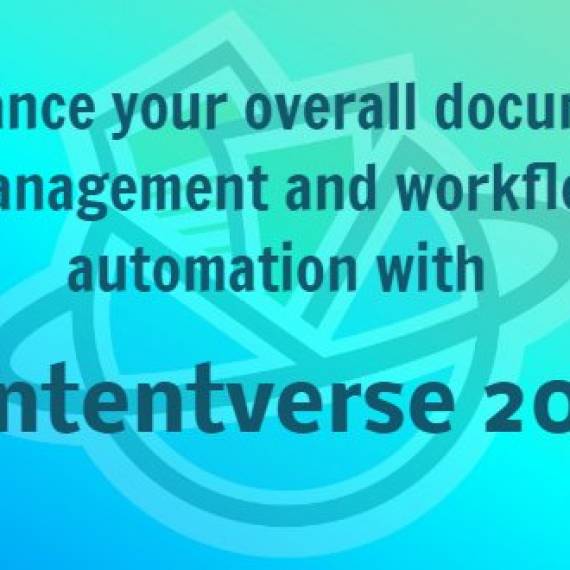When you think of the future, what comes to mind? Flying cars? Delivery drones? Cancer-curing nanotechnology? Some of these things may await us in the future, and—although it’s less of a fit for sci-fi films—but so does sophisticated document management.
While document management may not elicit the same excitement as a medical breakthrough or new mode of transportation, the role of document management remains enormous in both the short and long-term. Its future may surprise you.
The Experts Are Investing in Document Management
A recent Forbes article touched on the state of document management, effectively showcasing its sustained importance with this fact: nearly two thirds of IT Executives are investing in document management initiatives. So, considering that IT professionals are very fond of document management’s current and future state, what does the future of document management have in store? There are many exciting possibilities.
Why Are They Investing?
Computers and gadgets will continue to increase in storage capabilities while retaining a convenient size, but the constant emergence of new digital platforms and file types means that document management beyond personal computers and gadgets is essential for any business of a decent size. In 2014, 68% of organizations have five or more storage repositories, with many IT leaders citing an inability to easily find content and poor mobility as big challenges.
A Relief for All: Search and Mobility Will Improve
Emerging document management methods and platforms will seek to eliminate those aforementioned challenges. In the coming years, many content management systems will follow the lead of Contentverse and focus on a quality search interface that allows for customizable queries and quick results. Similarly, content management functionality on mobile gadgets like Google Glass should become commonplace as a storage solution for both personal and business use.
The Debate Regarding File Storage and Collaboration Will Continue
Some professionals suggest that future document management will definitively separate file storage and collaborative abilities, primarily as a way to prevent against accidental deletions or permissions. According to Forbes, the benefits of dividing storage from collaboration are numerous: “File locking for large files becomes easier, backups and disaster recovery become a function of software and not constricted by hardware and all those existing assets that organizations have can be leveraged to the nth degree.”
Efficiency vs. Document Management Functionality
Efficiency and effectiveness are the primary arguments for those in favor of such a separation, though a similarly strong case can be made for cohesively balancing storage with collaboration, as opposed to separating them. Switching between storage and collaboration functionality may become cumbersome if they’re separated, especially in a business environment, so the solution may instead lie in improved document management functionality technology as opposed to separating storage from collaboration.
Regardless, the Future of Document Management Is Bright
While there is a lack of definitiveness regarding the extent of future mobility and storage/collaboration separation, there’s no doubt that the future of document management is bright, as the two thirds of IT Executives that invested in document management initiatives can agree. It will be exciting to watch the future of document/content management grow alongside other evolving tech like wearable gadgets, transportation advances, and other sci-fi dreams that are slowly becoming reality.
About the Author:
  | Mike Mineo is a writer and PR professional who enjoys writing about music and technology. He is the founder/editor of Obscure Sound, a music site that features independent artists, and also runs Obscure PR, which seeks awareness for independent talent. Also an experienced tech writer, he was impressed by Computhink’s software and staff, which prompted him to join Computhink’s team. Mike has a BA in Communications from Fordham University. |














Leave a Comment